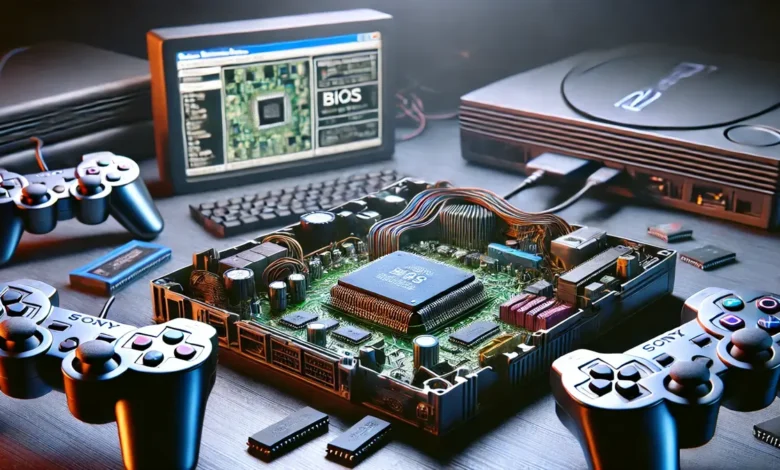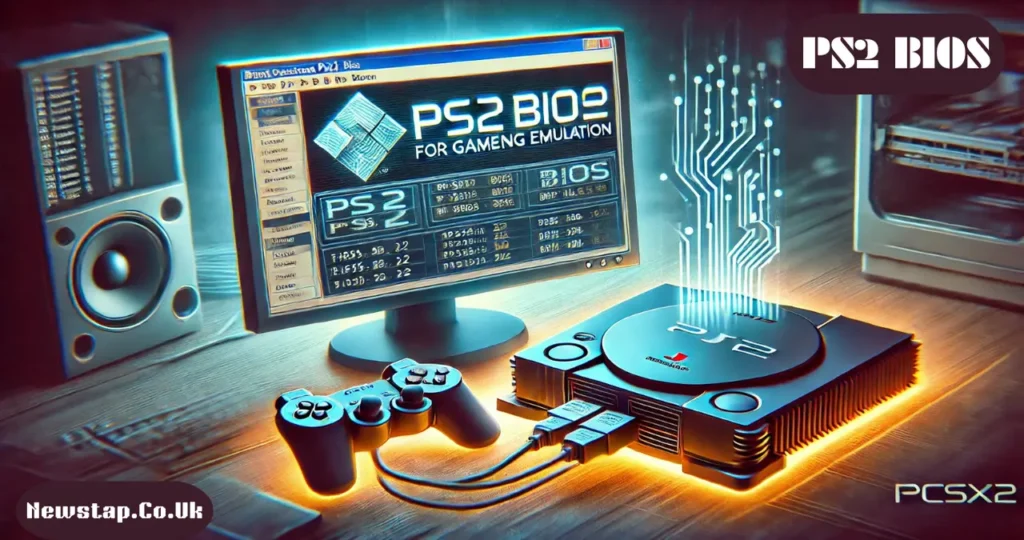The Impact of PS2 BIOS on Emulation and Gaming Performance

Introduction
The PlayStation 2 (PS2) remains one of the most celebrated gaming consoles in video games. Even years after its release, enthusiasts and gamers alike turn to PS2 emulators to relive the iconic gaming experiences it offers. Central to the functioning of these emulators and the overall gaming performance on the PS2 is its BIOS—Basic Input/Output System. This article explores how the PS2 BIOS impacts emulation and gaming performance, providing insights into why it remains a critical component in the emulation process.
Understanding PS2 BIOS

PS2 BIOS of the PlayStation 2 is the firmware that initializes the hardware of the console when it is powered up. It is responsible for setting up the system and managing data flow between the console’s processor, memory, and peripherals. The BIOS is stored on a ROM chip within the console, making it integral to the PS2’s operation.
Role of BIOS in PS2 Emulation
Emulation involves replicating the hardware of one system on another system, allowing games designed for the former to be played on the latter. For PS2 games, this means replicating the functions of the PS2 on a PC or other devices. Here’s how the PS2 BIOS influences this:
- System Initialization: When an emulator runs, it uses a copy of the PS2 BIOS to perform the same initialization and hardware checks that the actual console would.
- Hardware Communication: Through the BIOS, the emulator can communicate accurately with the virtual hardware, mimicking the PS2’s interactions with its memory cards, controllers, and other peripherals.
- Game Compatibility: Some games utilize specific functions of the PS2 BIOS, and without it, these games might not run correctly or at all on an emulator.
Impact on Gaming Performance
The accuracy and legality of BIOS emulation significantly affect gaming performance in several ways:
- Speed and Efficiency: A correctly emulated BIOS ensures that games run smoothly and efficiently, closely mimicking the original hardware’s speed.
- Graphics and Audio Fidelity: The PS2 BIOS also affects how graphics and audio are processed and rendered. Accurate emulation of the BIOS helps maintain the visual and auditory integrity of the games.
- Game-Specific Functions: Advanced features and game-specific functions are only available if the BIOS emulation is accurate. This includes support for dynamic recompilation and handling PS2’s unique memory architecture properly.
Challenges in Emulating PS2 BIOS
Emulating the PS2 BIOS comes with its set of challenges:
- Legal Issues: In many jurisdictions, downloading or distributing PS2 BIOS without owning the original hardware is illegal. This presents a barrier to developing and using PS2 emulators.
- Technical Complexity: The PS2 architecture is complex, and replicating its BIOS functionalities accurately requires deep technical expertise and understanding.
- System Requirements: Because the emulation replicates the entire PS2 hardware in software, it can be resource-intensive. Higher system specifications are required for smooth emulation.
Enhancing Emulation through BIOS Customization
Advanced users and developers have explored enhancing emulation performance through BIOS customization. This includes tweaking the BIOS to improve load times, enhance frame rates, or even enable features not available in the original hardware.
Case Studies and Examples
Several emulators like PCSX2 demonstrate the impact of BIOS on emulation quality. By using different versions of BIOS, users can see variations in compatibility, performance, and stability across games.
Conclusion
The PS2 BIOS is more than just a gateway to memory management and hardware initialization. It is a cornerstone that affects everything from emulation legality to the fidelity and performance of the gaming experience. As the emulation community continues to grow, understanding and respecting the role of the PS2 BIOS will remain paramount.
This deep dive into the impact of PS2 BIOS on emulation and gaming performance sheds light on its critical role and ongoing relevance in the gaming industry, ensuring that the legacy of the PlayStation 2 continues to thrive in the digital age.
FAQS
What is the PS2 BIOS?
The PS2 BIOS (Basic Input/Output System) is the core firmware used by the PlayStation 2 console to initialize hardware and manage data flow between its processor, memory, and peripherals. It is essential for starting the console and preparing it for game play.
Why is the PS2 BIOS essential for emulation?
The PS2 BIOS is crucial for emulation because it ensures that the emulator can accurately mimic the functions of the original PlayStation 2 hardware. This includes initializing the virtual hardware, managing hardware communications, and supporting specific game functionalities that rely on BIOS features.
Is it legal to download the PS2 BIOS for use in emulators?
In many regions, downloading or distributing the PS2 BIOS without owning the original hardware is illegal. Users must obtain the BIOS from their PlayStation 2 console to stay within legal boundaries.
How does the PS2 BIOS affect gaming performance in emulators?
A correctly emulated PS2 BIOS impacts gaming performance by ensuring that games run smoothly, with accurate speed, graphics, and audio. It also supports specific game features and hardware emulation, contributing to a more authentic gaming experience.
Can modifying the PS2 BIOS improve emulator performance?
Yes, advanced users and developers can modify the BIOS to enhance certain aspects of emulation, such as improving loading times, increasing frame rates, and enabling features not available in the original console. However, such modifications require deep technical knowledge and can vary in effectiveness depending on the emulator and the game.





